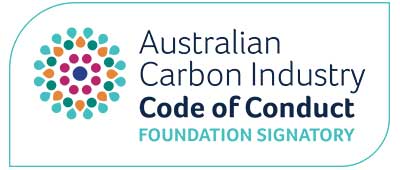Paris a step in the right direction
The COP21, which saw the Paris Agreement ratified by 195 countries with ambitious targets, hopefully marks a turning point internationally as well as domestically.
It was an amazing event to experience, overwhelming in many ways. The Australian Government played a constructive role and the Kimberley Land Council gave a number of great presentations on savanna burning. Ironically, it was the first time many Australians actually learned about the great carbon farming work being undertaken by Aboriginal people in northern Australia while in Paris.
Minister Hunt stated that 7 million tCO2-e had been contracted under the ERF from savanna burning, which at $13 per ton, represents a new industry worth over $90m.

Rowan asking Kevin Rudd a question at COP21 in Paris
COP21 was also a lesson in how negotiations should be staged. The foundations of the Paris Agreement can be found in Bonn Germany where all countries where invited to nominate their Intended Nationally Determined Contributions (INDC) at the UN Climate Change Conference in June 2015. This meant all the cards were on the table and the world could see each government’s proposed commitments to reduce greenhouse gases.
Limiting warming to “well below” 2°C, and anywhere near 1.5°C, means reducing CO2 emissions relatively quickly. To get to net zero emissions this century requires many policy changes. Fossil fuel companies must have their subsidies stripped. Investments in high-carbon emitting infrastructure must end, particularly World Bank loans and other regional multilateral bank loans. Zero emissions buildings will become the norm. Tropical forests will have to be protected to reduce and then eliminate deforestation. Savanna fire management must also be undertaken in Brazil and Africa as it is now practised in Australia.
Indigenous rights are acknowledged in the final agreement, and acknowledged as district from human rights. This is largely because Indigenous rights include property rights such as land rights and native title rights, as found in Australia. This is an important point as carbon projects can only take place with the consent of the land owner, whereas in many regions of the world Indigenous people are only regarded as a stakeholder in their own lands with no consent or land rights.
Furthermore, a number of international Indigenous groups have concerns and argue that most of the solutions proposed by COP21 and corporations are overly market oriented and that mechanisms like REDD (Reducing Emissions from Deforestation and Forest Degradation) are a new form of colonialism for Africa.
Indigenous groups in Australia, New Zealand, Canada and USA have no access to the Green Climate Fund as we are located in first world countries. This means we are totally reliant on domestic policies and funding which with the abolition of the Indigenous Carbon Farming Fund are extremely limited.
Overall, the Paris Agreement is a good step in the right direction, however, the real work now begins.























